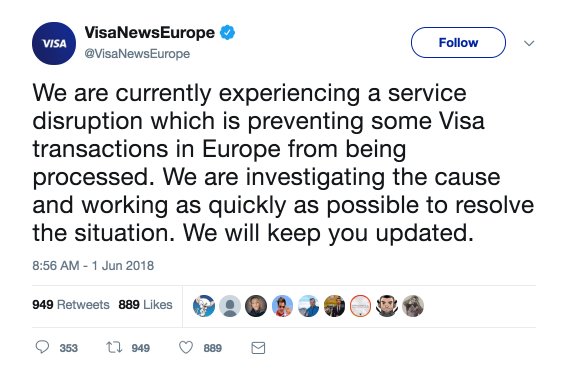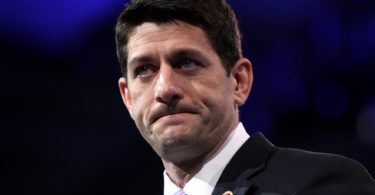Caused by an apparent ‘hardware failure,’ the widespread network outage affected large portions of the continent—a region that’s already made dangerous moves toward a cashless society.
In the UK, for example, 77% of all retail purchases in October were made with plastic, and Visa manages 95% of all debit cards in the country.
Needless to say, within a few hours, local economies quickly felt the pressure and panic. Ramzi Kozhani, manager of Cafe Brood in London, says he lost £3,000 and was forced to throw out excess stores of unused food.
The centralized nature of these financial behemoths quickly caused several large banks to issue public apologies, including the Royal Bank of Scotland and the Bank of Ireland—another reminder why crypto’s decentralized architecture is far more robust and reliable.
Visa released a statement denying claims that the network outage was caused by rogue hackers, but what if it was an inside job?

This whole debacle could have been a planned test to see how the public reacts when traditional payment systems crash—which you can expect to happen for longer than one day during the next financial collapse.
We do know globalists love cashless societies. Governments have every interest in going 100% digital to eliminate privacy and to put into place a global extortion (tax) dragnet to complete their total subjugation of all humans on Earth.
This will be great for banks of course. Think of all the fees they can charge.
If you pay everything digitally, not only are you dependant on a third party for access to your funds, but your entire life is mapped out, purchase by purchase.
It’s a great boon to the mafia (government) and extortionists (tax collectors), too, ensuring misleaders (politicians) and bureau-rats get a slice of everyone’s cake, all the time.
And there's another reason…







